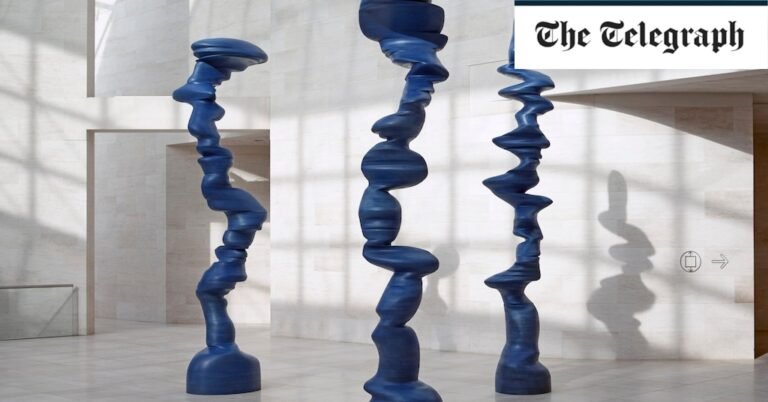When Cragg first moved to Wuppertal – his first wife was from the town – he got a job in a factory painting signs, but was introduced via an artist friend to the director of the free-thinking Kunstakademie Düsseldorf, who promptly offered him a job lecturing. He soon found himself sharing ideas with fellow lecturers Gerhard Richter and Nam June Paik, while “Joseph Beuys was still in the building.” He would spend 39 years teaching at the institution, rising to a professorship, then co-director and finally director.
His time there coincided with the rise of the multi-billion-pound contemporary art market, which he says has changed the sort of conversations one has in an art school. Cragg, like his contemporaries Antony Gormley and Anish Kapoor, emerged as an artist at a time when it was a purely radical choice to become an artist at all, with little prospect of making an income from it. (“My father was furious when I wanted to go to art school,” he says, “disappointed to the nth degree”.) All three men have, of course, gone on to find international renown and become part of that global market. Cragg’s works can now reach close to a million pounds at auction. And from students, he says, increasingly, “almost the only question you got is how to be successful”.
That said, he rejects my suggestion that we are living through an era in which the big-name artists, like their rock’n’roll counterparts, are the last of their kind. One of the issues, he says, is that there are thousands more artists than there were back then but he insists, “I can name 20 young artists that I think are really, really good – they have to be given time, sculptors anyway; it takes time to learn how to do it.”
And there’s still so much to do, he insists, “there are billions of forms in that block of clay, billions of meanings and billions of emotions and billions of new words to be created. We forget that humanity’s just beginning; maybe it’s not the best phase, but humanity is really in a very, very early stage… I’m full of a sense of wonder, I really cannot fathom why I’m here, why we’re here. The idea of ‘thinking material’, self-reflecting consciousness, is so amazing.”
He believes we’ll make it into the next century, then? He grins, and that very British sense of humour resurfaces. “Some of us will,” he says.
Tony Cragg is at Castle Howard, near York (castlehoward.co.uk) from Friday to Sept 22

